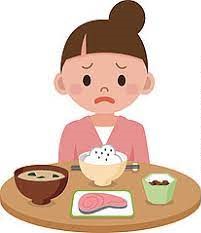Anorexia is one of the most prevalent emotional disorders, following anxiety and depression. It is an eating disorder characterized by a loss of appetite for food as a medical condition, accompanied by an intense preoccupation with weight and dietary habits. Officially referred to as Anorexia nervosa, the disorder is categorized into two primary types:
1. Restricting: This involves extreme restriction of food intake as the main method of achieving weight loss.
2. Binge-eating/purging type: This type includes episodes of food consumption followed by compensatory behaviours such as self-induced vomiting, misuse of laxatives or diuretics, or excessive exercise.
Common symptoms associated with anorexia nervosa include:
Compulsive behaviours, binge eating, and hyperactivity.
Fatigue fainting, low body temperature, and low blood pressure.
Underweight or extreme weight loss.
Anxiety, guilt, or apprehension.
Brittle nails, dry skin.
Sensitivity to cold, slow heart rate.
Vomiting.
Dizziness, dehydration, and fainting.
Intense fear of weight gain or becoming fat.
Delayed puberty or slow growth.
Abnormal blood counts.
Anorexia nervosa often involves significant emotional struggles and an exaggerated fear of weight gain. It commonly develops during the teenage years or adulthood and can also serve as a symptom of other underlying conditions.
Have a look at some common causes of it.
Anorexia is a complex emotional disorder with no single known cause. It is likely triggered by a combination of psychological, biological, and environmental factors. These may include:
Peer pressure: Social influences, particularly among girls, can intensify the desire to be thin.
Psychological: A strong drive for perfectionism and obsessive-compulsive personality traits can make it easier for some individuals to adhere to strict dieting habits.
Biological factor: Genetic predispositions, such as a tendency toward perfectionism, may be linked to an increased risk of anorexia.
Emotional Stress: Major life transitions, emotional stress, or significant changes can increase the risk of developing anorexia.
Starvation and dieting: Prolonged starvation impacts brain function, leading to mood changes, inflexible thinking, and a decreased appetite.
Anorexia is associated with numerous complications and, in severe cases, can be life-threatening. Fatalities often result from electrolyte imbalances or abnormal heart rhythms. The condition typically lasts for an average of 8 years, severely affecting both physical health and mental well-being.
Following are the preventive measures
Teach them how to resist peer pressure effectively.
Build their confidence and self-esteem.
Educate them about the importance of maintaining a healthy, ideal weight.
Tell them being extremely thin isn't good for your health.
Tell them the values of their personality, looks can be secondary.
Encourage seeking professional help from a counsellor or therapist, as they are skilled in addressing such issues.
Praise and compliment them, give them support and be their role model.
Since anorexia is a psychiatric disorder, the key step is to establish a treatment plan in collaboration with a psychiatrist.
Here are some additional tips for managing the condition:
Begin with small, manageable eating habits. Consume foods that are both enjoyable and nutritious.
Take care of yourself and do what makes you happy!
Speak! Ask for emotional support.
Take proper rest. Take a break from social media, TV, or any harmful or unrealistic messages.
Spend quality time with loved ones.
Wear comfortable clothes, and practice positive affirmations such as, "I look beautiful/handsome every day" when looking in the mirror.
Adopt a healthy and balanced lifestyle to promote relaxation and recovery.
Incorporate yoga into your routine as it is an excellent way to relax the mind and body while also boosting self-confidence. Some yoga poses to consider include:
- Tadasana (Mountain Pose)
- Kapotasana (Pigeon Pose)
- Bhujangasan (Cobra Pose)
- Dhanuradana (Bow Pose)
- Halasana (Plow Pose)
Make small and realistic goals.
Do pranayama and go for a morning walk.
Remember, "your willpower has more power than you think!"
|

